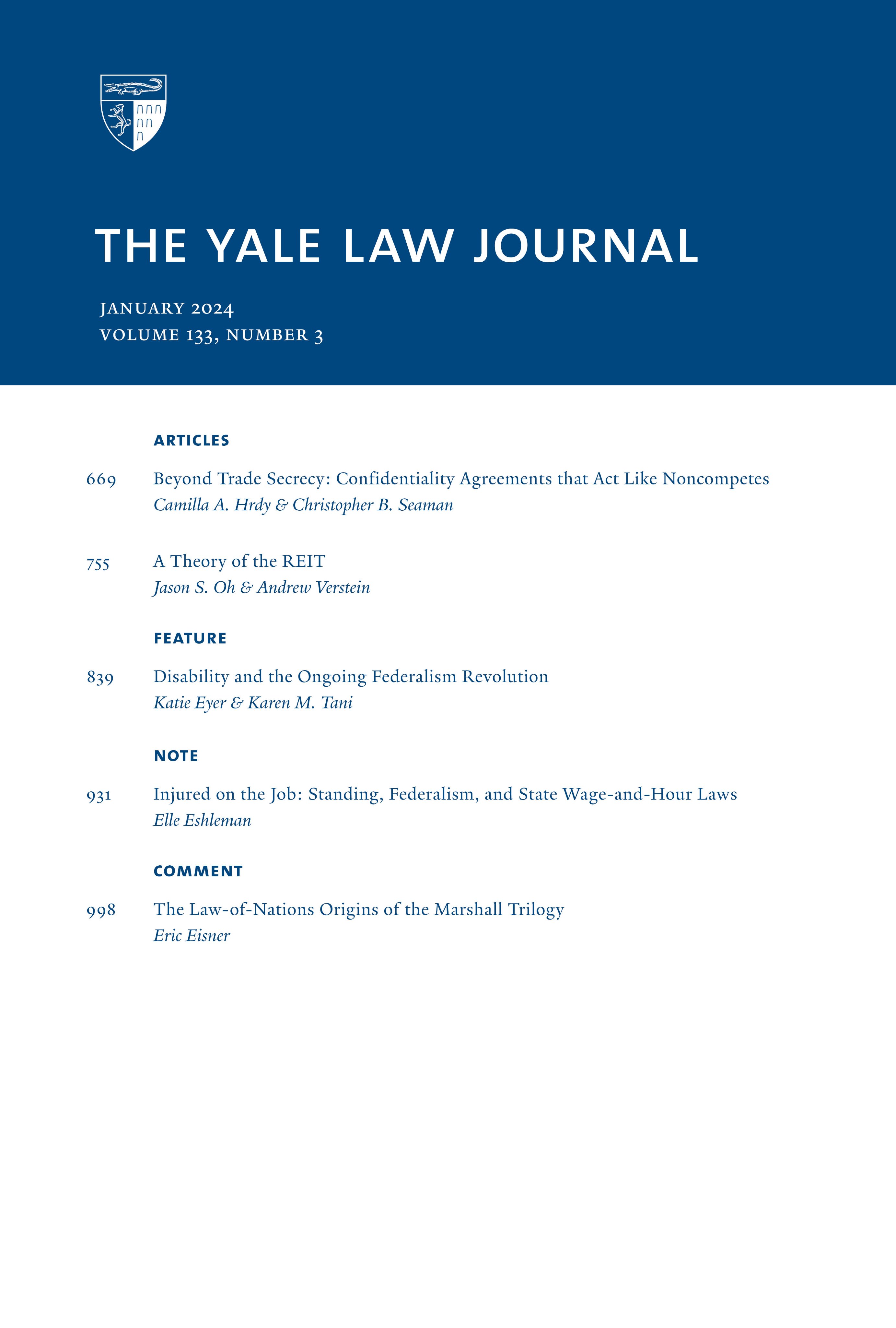"I Did Not Come Here To Defend Myself': Responding to War on Terror Detainees' Attempts To Dismiss Counsel and Boycott the Trial
IF 5.2
1区 社会学
Q1 LAW
引用次数: 1
Abstract
A significant portion of the war on terror detainees who have been charged at Guantanamo have announced their intentions to dismiss their attorneys, to waive their right to be present at their trials, or to take both actions simultaneously so that their interests will not be represented. This Note demonstrates that strong justifications, rooted in international and domestic legal rules and precedent, support honoring the detainees’ requests. Yet the military tribunal proceedings are designed to follow the adversarial model to achieve just outcomes; granting the detainees’ procedural requests can, in certain situations, undermine the ability of the military commissions to reach just outcomes in favor of the personal whims of the detainees. When a detainee’s procedural request threatens to undermine the adversarial model, I propose that military adjudicators appoint an amicus curiae counsel to provide sufficient process on behalf of the tribunal. author. Yale Law School, J.D. expected 2008; Yale University, B.A. 2005. The author is especially indebted to Professor Michael Wishnie for his support and advice throughout this project. He also wishes to thank Maj. Thomas Fleener and Lt. Cmdr. William C. Kuebler of the U.S. Department of Defense Office of Military Commissions for their firsthand insights; Professor Muneer Ahmad, Peter Elikann, Justice Joette Katz, Justice Richard Palmer, Priti Patel, and Katherine Wiltenburg Todrys for their comments on earlier drafts; and Benjamin Siracusa for his expert editing. 0070.BLOOM 10/25/2007 10:58 AM i did not come here to defend myself“我不是来这里为自己辩护的”:回应反恐战争被拘留者拒绝律师和抵制审判的企图
在反恐战争中被关押在关塔那摩的囚犯中,有相当一部分人宣布,他们打算解雇自己的律师,放弃出庭受审的权利,或者同时采取这两种行动,这样他们的利益就不会得到代表。本说明表明,基于国际和国内法律规则和先例的有力理由支持尊重被拘留者的请求。然而,军事法庭的诉讼程序旨在遵循对抗模式,以获得公正的结果;在某些情况下,批准被拘留者的程序性要求可能会损害军事委员会达成有利于被拘留者个人突发奇想的公正结果的能力。当被拘留者的程序性请求有可能破坏对抗模式时,我建议军事裁判任命一名法庭之友律师,代表法庭提供充分的程序。作者。耶鲁大学法学院,法学博士,预计2008年;耶鲁大学,文学士2005。作者特别感谢Michael Wishnie教授在整个项目中给予的支持和建议。他还希望感谢美国国防部军事委员会办公室的Thomas Fleener少校和William C. Kuebler中校提供的第一手见解;Muneer Ahmad教授、Peter Elikann、Joette Katz法官、Richard Palmer法官、Priti Patel和Katherine Wiltenburg Todrys法官对早期草案的评论;以及Benjamin Siracusa的专业编辑。0070.我不是来这里为自己辩护的
本文章由计算机程序翻译,如有差异,请以英文原文为准。
求助全文
约1分钟内获得全文
求助全文
来源期刊

Yale Law Journal
LAW-
CiteScore
4.50
自引率
6.20%
发文量
0
期刊介绍:
The Yale Law Journal Online is the online companion to The Yale Law Journal. It replaces The Pocket Part, which was the first such companion to be published by a leading law review. YLJ Online will continue The Pocket Part"s mission of augmenting the scholarship printed in The Yale Law Journal by providing original Essays, legal commentaries, responses to articles printed in the Journal, podcast and iTunes University recordings of various pieces, and other works by both established and emerging academics and practitioners.
 求助内容:
求助内容: 应助结果提醒方式:
应助结果提醒方式:


